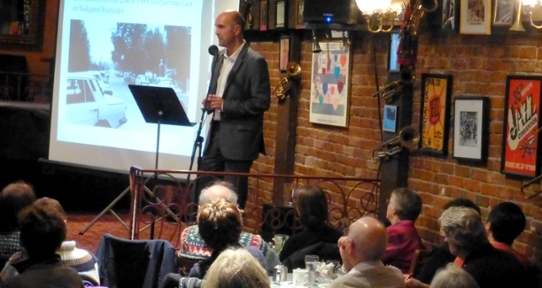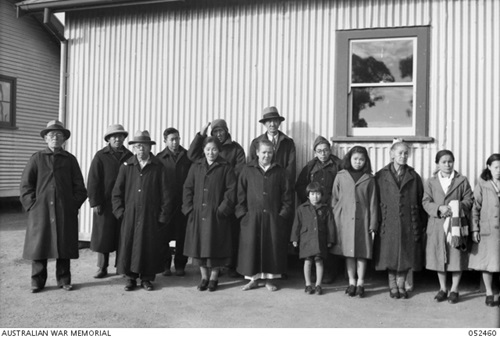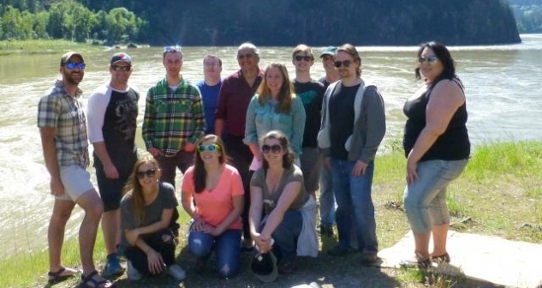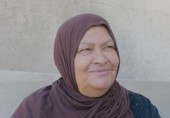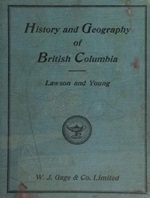History on The Edge
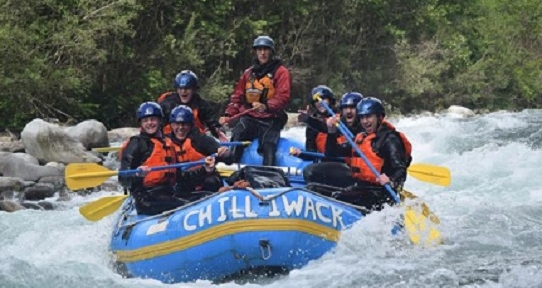
In many ways UVic History Department is at the cutting edge of our discipline while being firmly grounded in our local and regional communities. We are proud of our leadership in community engagement, including our focus on Indigenous communities, our dynamic experiential learning, our field schools, our success in public and digital history, and many other areas of historical scholarship. We draw on the vital energy of our communities and give back through public presentations, film, websites, exhibits, publications and much more. These are few of the ways we are having an impact on the edge while still staying close to the centre of our city and region…
Talks of the Town
Café Historique
What is a Café Historique? A group of interesting people in a convivial café setting, who gather to hear a stimulating talk and discuss new ideas about how the past has shaped our present and future, as well as to drink, eat, converse, meet friends, and have an evening to remember. A monthly series at Hermann’s Jazz Club in Victoria.
Many in the department are excited to give free public talks in their area of research. Download our current list here.
World Affairs in Historical Perspective
As crises hit, dynasties crumble, elections shake the globe we gather experts from across campus to put these affairs in historical perspective.
Global South Series
Five free lectures which focus on the intersected histories of religion, secularism, and the modern state in the Global South.
A free public lecture series featuring distinguished urbanists drawn from across north America.
Neil Burton Commemorative Lectures
This fund and lecture series was established to honour the memory of Neil Burton, a sessional lecturer at UVIC whose lifelong passion to educate people about China and Asia inspired all who knew him. The fund is managed by the Department of History and the Centre for Asia Pacific Initiatives. See https://www.uvic.ca/research/centres/capi/events/home/burton/index.php for previous lectures. To contribute, write a cheque to the University of Victoria with the notation Neil Burton Commemorative Fund. All donations are tax deductible.
150 Years and Counting: Fighting for Justice on the Coast
This ten-panel exhibit was developed by the project “Asian Canadians on Vancouver Island: Race, Indigeneity and the Transpacific,” directed by Professor Emeritus John Price. The exhibit focuses on stories of Asian Canadians and Indigenous peoples and their long and continuing fight for justice and equality in the face of provincial and federal policies of dispossession and exclusion. The exhibit consists of ten 7’x3’ collapsible vinyl panels with images and text, drawn from both historical documents and first-person accounts. It focuses mainly on communities on Vancouver Island and the Gulf Islands. Since its original opening in November 2017 at the Saltspring Library, it has been on display at the Nikkei National Museum and Cultural Centre, Vancouver Island University, the Museum at Campbell River, the Heritage BC conference in May, and the Vancouver Police Museum. The exhibit was shown at the community hall at Yuquot, home of the Mowachaht-Muchalaht First Nation, and then at the House of Unity at Tsaxana, near Gold River. It moved to the Cowichan Valley Museum and Archives in Duncan in November-December and will open at the Qualicum Beach Museum in January. Accompanying the exhibit is a 25-page history booklet, 150 Years and Counting: Fighting for Justice on the Coast.
In addition to our field schools, in our Public History Courses, Digital History Courses, Veteran’s Oral History Course and “Migration, Race and Empire” all have students working with community organizations doing applied research projects which are excellent intellectual and work experience.
Field Schools and Experiential Learning
In addition to our field schools, in our Public History Courses, Digital History Courses, Veteran’s Oral History Course and “Migraton, Race and Empire” all have students working with community organizations doing applied research projects which are excellent intellectual and work experience.
Colonial Legacies Field School in South Africa
Dr. Elizabeth Vibert leads this three-week undergraduate/graduate field school to Cape Town and Limpopo Province to explore the impacts of colonial histories on everyday life and on rural and urban landscapes. The three-week field school is the centrepiece of a three-unit, experiential-learning course: HSTR 474. For more information contact evibert@uvic.ca
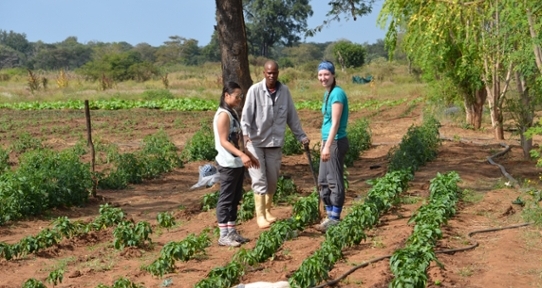
Ethnohistory Field School with the Sto:lo
This is month long graduate level field course held in the Sto:lo communities of the Fraser Valley every second year. Working with Sto:lo elders and staff and alongside students from the University of Saskatchewan students work with Dr. John Lutz and Dr. Keith Carlson on historical projects identified by the Sto:lo. Learn more and see student projects here. This field school won the Hackenberg Memorial Prize from the Society for Applied Anthropology in 2016.
Victoria-Vancouver-Hope-Greenwood-Kaslo-New Denver-Slocan Valley
Learn Canada’s Internment History in the Places Where it Happened
Canada’s Internment Era
- Taught by Jordan Stanger-Ross, Professor of History and Project Director of Landscapes of Injustice
- One week on the Nikkei National Museum’s renowned bus tour of sites of internment, one intensive week in-class in Victoria
- Discover how this history is being taught in primary and secondary school classrooms across Canada
- Graduate and undergraduate streams available
- Cross-listed for credit in History or Pacific and Asian Studies
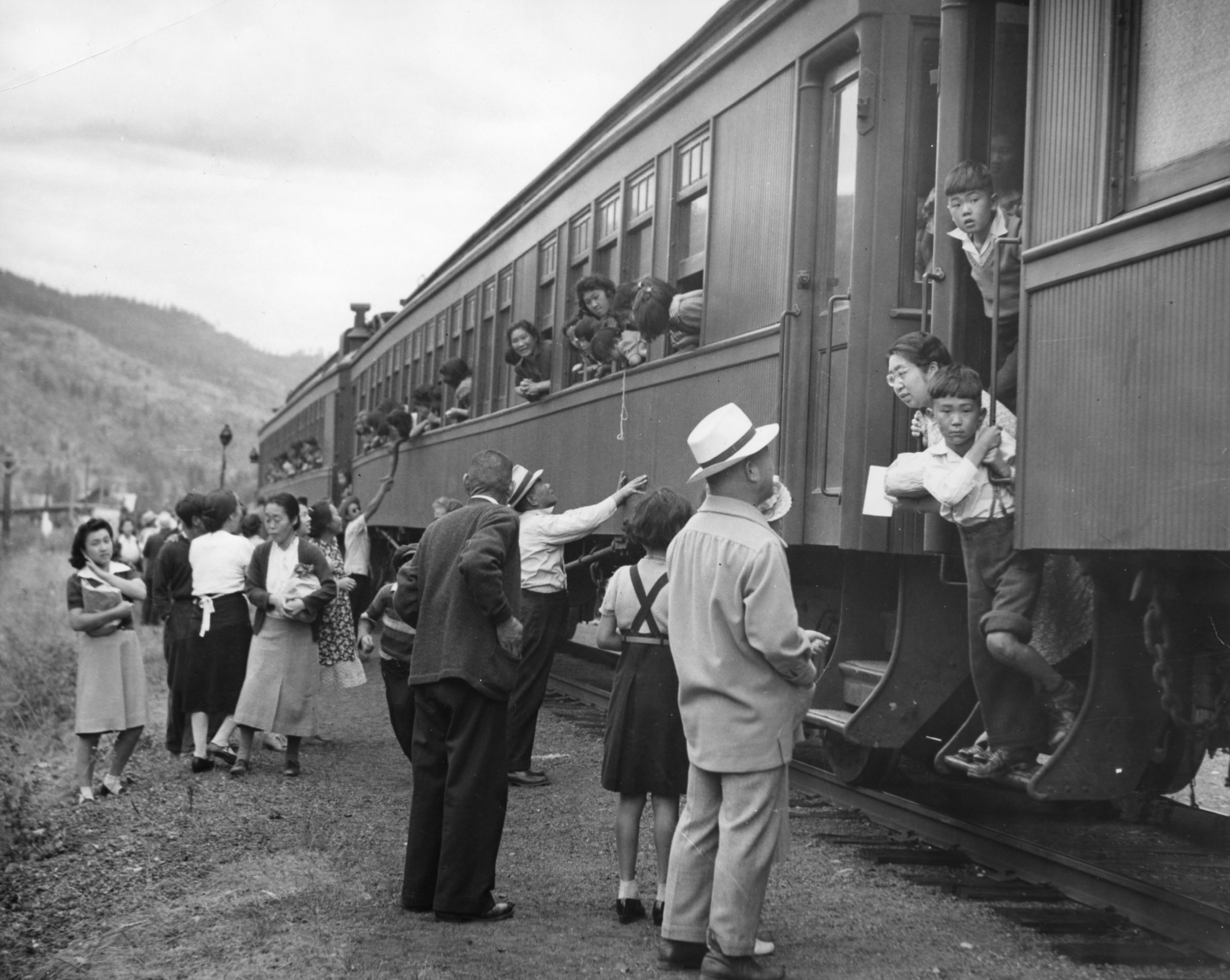
Community Engaged Scholarship
Beyond the field schools which work closely with local community organizations, our department is the home of several major grant-funded community-engaged projects:
Landscapes of Injustice
One of the largest projects in the humanities and social sciences in Canada today, Landscapes of Injustice is a collaboration of universities, museums, archives, primary and secondary schools, and community organizations to research and tell the history of the dispossession of the property of Japanese Canadians during the 1940s. Most Canadians know that British Columbians of Japanese origin were interned in the 1940s. Fewer know that all of their homes, businesses, farms, and personal belongings were sold without their consent. Former property owners and their descendants still feel the shock of the forced sales, the destruction of their neighbourhoods, and the betrayal of the promise that the Canadian government would “protect and preserve” their land and possessions. Canadians are heirs of landscapes of injustice. Led by Jordan Stanger Ross and based in the UVic History Department, the project will produce academic publications, teacher resources, interactive digital media, and a travelling museum exhibit. This is a story about the violation of human and civil rights at a time of perceived insecurity, about measures taken in the name of national defense that made no one safer, about the enduring harms of mass displacement, and about the resilience people confronting injustice. Learn more about our project, including employment opportunities for students, at www.landscapesofinjustice.com
Past Wrongs, Future Choices (PWFC) is an international partnership co-directed by Jordan Stanger-Ross and Audrey Kobayashi. This project mobilizes knowledge about the injustices perpetrated against civilians of Japanese descent (Nikkei) during the 1940s in allied countries, including Canada, Australia, Brazil, the United States, and Japan. By addressing this transnational history, PWFC reveals critical insights into present-day challenges of migration, racism, and security.
The partnership is organized into several interconnected clusters: Museum Exhibits, Teacher Resources, Archives, the Film Initiative, and the Scholars Network. These clusters collaborate to produce exhibitions, educational tools, digital archives, and films, while integrating innovative scholarship and community-based knowledge. Together, they illuminate the global connections and local variations in the racialized injustices faced by Nikkei civilians, fostering a deeper understanding of how democratic societies can learn from historical wrongdoing.
Grounded in its commitment to equity, diversity, and inclusion, PWFC ensures the active involvement of Nikkei communities and leaders throughout its work. By linking these histories with contemporary issues, PWFC catalyzes public dialogue, promotes social accountability, and transforms public understanding of how societies can choose better paths forward.
Chinese Canadian Artifacts Project
This project created a website which for the first time brings together and makes accessible in a single, searchable database over 6000 Chinese Canadian artifacts held by the sixteen local and regional museums throughout British Columbia. It mainly reflects the everyday lives of early Chinese Canadians – their resilience in the face of over a century of racist exclusions, their work and family life from decades past, and their ongoing community contributions. Led by Zhongping Chen and John Price of the History Department, together with Tusa Shea in the Division of Continuing Studies of UVic, this project is one of the Legacy Initiatives that the British Columbia government took as a part of its official apology for its racist policies toward immigrants from China from the late nineteenth to the early twentieth century, especially for its role in the imposition of the Chinese head tax. The project received support from the B.C. Museums Association, and it also benefitted from the technical expertise provided by UVic’s Humanities Computing and Media Centre.
Asian Canadians on Vancouver Island
In 1786, a young Mowachaht chief from Yuquot (Nootka) travelled to China and stayed for a year learning Chinese. Shortly afterwards, nearly a hundred Chinese visited Yuquot as part of the early fur trade. The research project Asian Canadians on Vancouver Island: Race, Indigeneity and the Transpacific, led by John Price, aims to recover and retell the stories of Asian Canadians on Vancouver Island with specific focus on ties with First Nations. Partnering with local museums, the project will look at historical relationships among Asian Canadian communities on Vancouver Island and adjacent islands, their relations with First Nations, and also draw attention to allies who, in standing up for the rights of the marginalized, were harbingers of Canada’s multicultural future. The project’s goals include the establishment of a select digital archive on Asian Canadian/Indigenous history; the writing of two books based on this collection; the construction of a digital history website housing the stories and related inventories from local archives and museums; a learning resource for history instructors; and the mounting of Asian Canadian exhibits in local museums.
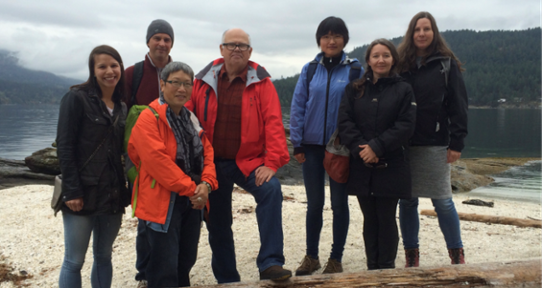
Community Mapping Collaboratory
The Department’s faculty and students have worked with the UVic library to create a digital historic map portal with over 900 historic maps of the region and worked with many local community groups and NGOs like the United Way to assist in the creation of community maps like the Fernwood, Highlands and Oak Bay maps and the Capital Region online Green Map.
Indigenous Community Engaged Scholarship
Humanities Indigenous Scholar
The Humanities Faculty, with the support of the SSHRC-funded research project Asian Canadians on Vancouver Island led by John Price, and the History Department, has initiated the first annual Humanities Visiting Indigenous Scholar Award and the inaugural recipient is Dr. Nick Claxton, XEMŦOLTW̱, of the Tsawout Band & WSÁNEĆ Nation. Dr. Claxton is an Assistant Teaching Professor in the Faculty of Education and for the 2016-17 year he will also be advising, lecturing and offering training to faculty and students in the Faculty of Humanities. His dissertation and ongoing research involves using the teachings, materials, technology and practice of the historical Reef Net Fishing as a tool for cultural strengthening.
Ethnohistory Field School with the Sto:lo
See the entry under field schools.
Local Engagement
The History Department works with our region’s Songhees, Esquimalt and Saanich First Nations on a variety of initiatives.
Since 2016 the Department has sponsored “Colonial Reality Tours” led by Songhees knowledge holder Cheryl Bryce to introduce members of the UVic community to the local indigenous territory.
In February 2017 we co-hosted the conference: First Nations, Land, and James Douglas: Indigenous and Treaty Rights in the Colonies of Vancouver Island and British Columbia,1849-1864 with the Songhees First Nation. Over three hundred people attended the conference. Video summaries of the presentations and a comprehensive website on the Vancouver Island treaties emerged from the conference. To Share, Not Surrender features many of the research presentations and is available from UBC Press.
Faculty and students work are engaged in research projects when invited by local Indigenous communities.
Community Mapping
Working with the UVic Community Mapping Collaboratory John Lutz and department students have worked with the Saanich, Sto:lo and Hartley Bay Gitga’at communities to create cultural and digital story-telling maps of their territories.
The department has participated in historical mapping workshops with the youth from the Songhees Youth Leadership Council.
Film and Exhibits
In early 2025 Elizabeth Vibert and her Palestinian and Canadian team launched their documentary film Aisha’s Story, which relays the history of Palestinian dispossession and displacement through the life story of grain miller Aisha Azzam. The film is a product of Dr. Vibert’s SSHRC-funded research project “Four Stories About Food Sovereignty.” Aisha’s Story, like the other projects in the Four Stories network (rooted in Indigenous communities in Canada and Colombia, refugee communities in Jordan, and rural communities in South Africa), examines the history and politics of food crises in vulnerable communities, and community-level initiatives to work toward food justice in colonized contexts and in the era of climate crisis.
Landscapes of Injustice
Working on a travelling museum exhibit on the seizure of the property of Japanese Canadians during the war after their internment. See the description of the Landscapes of Injustice project.
The most famous Black artist of the American and Pacific Northwest.
Public History
Public History is the branch of our discipline that connects history directly with the public. This happens through many avenues: the internet, mobile phone apps, museums, interpretive programs, heritage planning, film, journalism, drama…. The History Department offers both undergraduate and graduate courses in Public History – and an MA program in Public History.
You will find some of the public history work the department does on some of the other tabs: Digital History, Films and Exhibits, but there are many other avenues, from consulting to land title research, and media interviews to teacher training.
Our graduated students are doing public history at galleries and museums around the province, in a wide range of civil service jobs and creating their own apps including the popular On This Spot co-created by alumnus Andrew Farris.
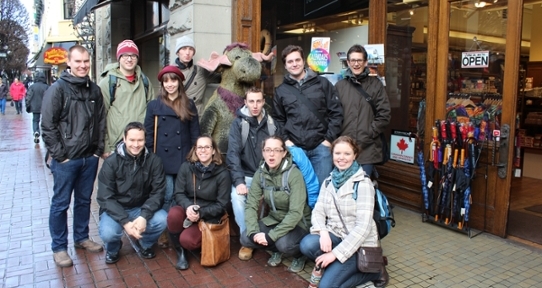
Digital History
Devilfish: The History and Future of Gray Whales and People
An animated digital map of human and gray whale history since 1840, by Dr. Jason Colby and Tim Cunningham.
British Columbia Historical Textbooks Collection
UVic Special Collections librarian/doctoral candidate Pia Russell won a Social Science and Humanities Research Council’s (SSHRC) Insight grant for Unsettling History: An Interactive Digital Library of British Columbia’s Historical Textbooks, 1871-1921. The research team won the 2022 British Columbia Library Association (BCLA) Champion of Intellectual Freedom Award.
Antiracist History and Theory Website - A collection of factsheets and art projects that distill rich academic works into accessible content.
Antiracist Workshop created by Dr. Georgia Sitara - The video is a lecture over power point which condenses a fascinating history of the idea of race and theories of racialization, an overview of how racism functions in society as well as a discussion of anti-racist strategies. Seven to nine minutes are devoted to each theme. 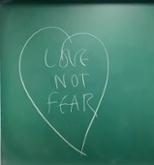
Great Unsolved Mysteries in Canadian History
This site is home to 13 intriguing real historical mysteries which students are invited to solve by exploring the evidence. There are another 44 shorter mystery quests drawn from the historical archives. Also available en français!
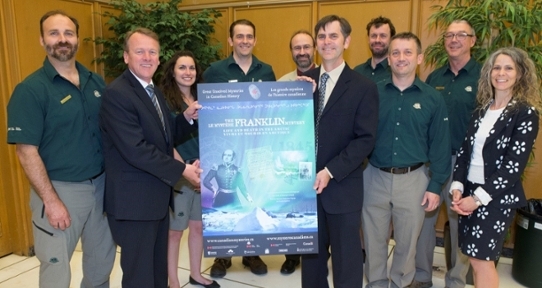
The Canadian Great War Project
In November 2016, the History Department and the Library took responsibility for the long term preservation and enhancement of one of Canada’s premier Great War websites. The Canadian Great War Project is a crowdsourced website that includes fully searchable data on over 170,000 soldiers and thousands of transcribed pages of war diaries letters post cards and photos about Canadians in the First World War.
Founded by Mr. Marc Leroux, a Canadian living in the US, the site has grown steadily over more than a decade thanks to the contributions of hundreds of supporters across Canada and around the world. In the years ahead, the site will continue to welcome contributions from supporters and provide free and open access to all as part of the Library’s digital collection.
VICTORIA AND BRITISH COLUMBIA HISTORY
Victoria’s Chinatown: A Gateway to the Past and Present of Chinese Canadians
Stories, photos, maps, documents and artefacts regarding the oldest and once the largest Chinatown in Canada. Led by Dr. Zhongping Chen (principal investigator) and Dr. John Price working with the local Chinese Canadian community and the UVic Libraries, with a grant from the Community Historical Recognition Program of the Ministry of Citizenship and Immigration Canada and the Ministry of Community, Sport and Cultural Development of British Columbia.
Victoria in the era of WW I. This website has a series of student thematic projects and over 1000 archival documents relating to Victoria in the decade 1910-1920.
All the data you ever wanted on everyone who lived on Vancouver Island from 1881–1911. This is a compilation of census, directory and tax roles for Victoria and much of Vancouver Island.
The Missing Paintings of Grafton Tylor Brown: a brief biography of the trans-racial first professional artist in British Columbia and a list of his known paintings and their locations.
HISTORICAL DOCUMENTS
All the correspondence between the governors of Vancouver Island and British Columbia and the Colonial Office.
The daily journal kept at Fort Victoria from 1846-1850.
British Colonist Newspaper 1858-1951
All the issues of the British Colonist (also called The Daily British Colonist, the Daily Colonist, and other variants) from its first issue in 1858 to December 1950. Once trapped between its crumbling covers, the chronicle of Victoria and British Columbia is now available at the click of a mouse.
Over 900 historic maps relating to southern Vancouver Island and BC.
ANALYTICAL TOOLS
This site is designed to encourage the use of measures of residential segregation in Canadian urban history. City Stats provides access to several measures of segregation by ethnic group, providing decennial results from 1961 to 2001 for all areas in Canada with census tracts (in 1991 and 2001 we use "single origin" data).
Historical Research and Scholarship
Our cutting edge research and scholarship is too long to list here but check out a list of our books and prize winners.
Interacting with K-12
History Fairs
The UVic History department has been hosting History fairs since 2011. They are an annual event, held in either April or December, where we invite high school Social Studies teachers to bring their classes to UVic. High school students get a few hours to experience campus and attend a round robin of several 30 minute mini-lectures as well as refreshments during the break. The mini-lectures are designed to grab student’s interest and give them a sense of the wide variety of courses we offer. These History fairs are a great way for our professors and staff to engage with the community and build connections with local teachers.
Professional Development Workshops for Social Studies Teachers
Each year we collaborate with the Division of Continuing Studies to host a Professional Development Day attended by local Social Studies teachers. While the contect varies from year to year, we introduce pedagogical tools developed by the Department and new historiographical thinking about subjects they regularly teach or new areas of interest. Faculty and PhD students participate on a voluntary basis and we also invite outstanding local high school teachers to present. The event serves to build a better collaboration between the university and local high school teachers.

